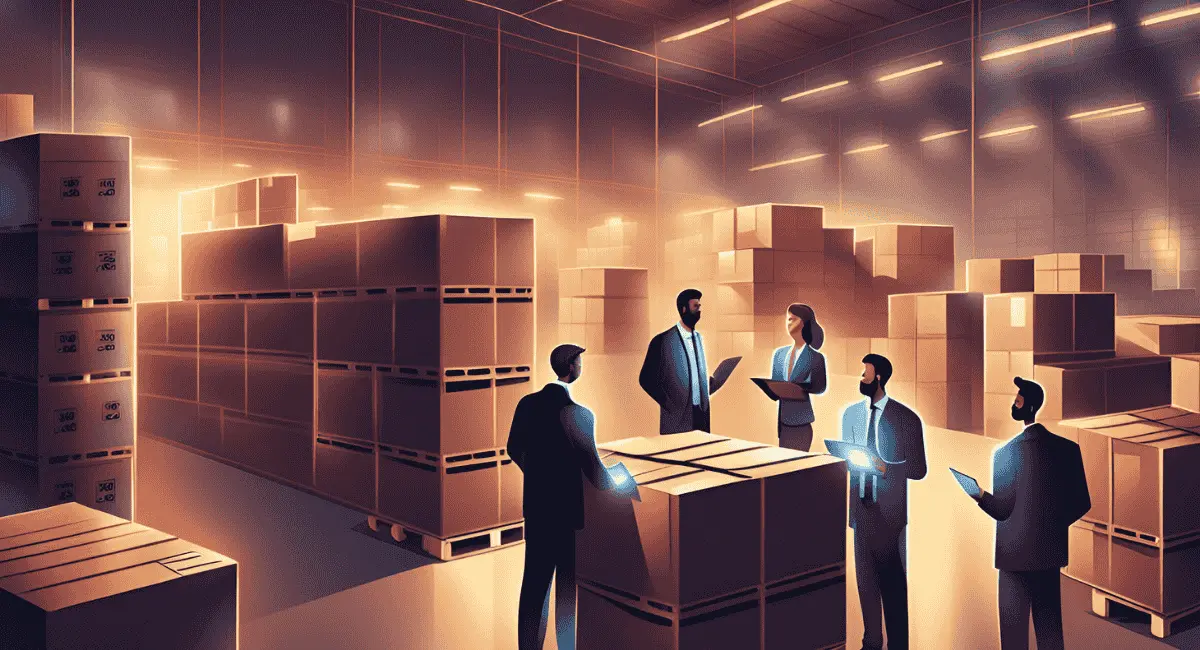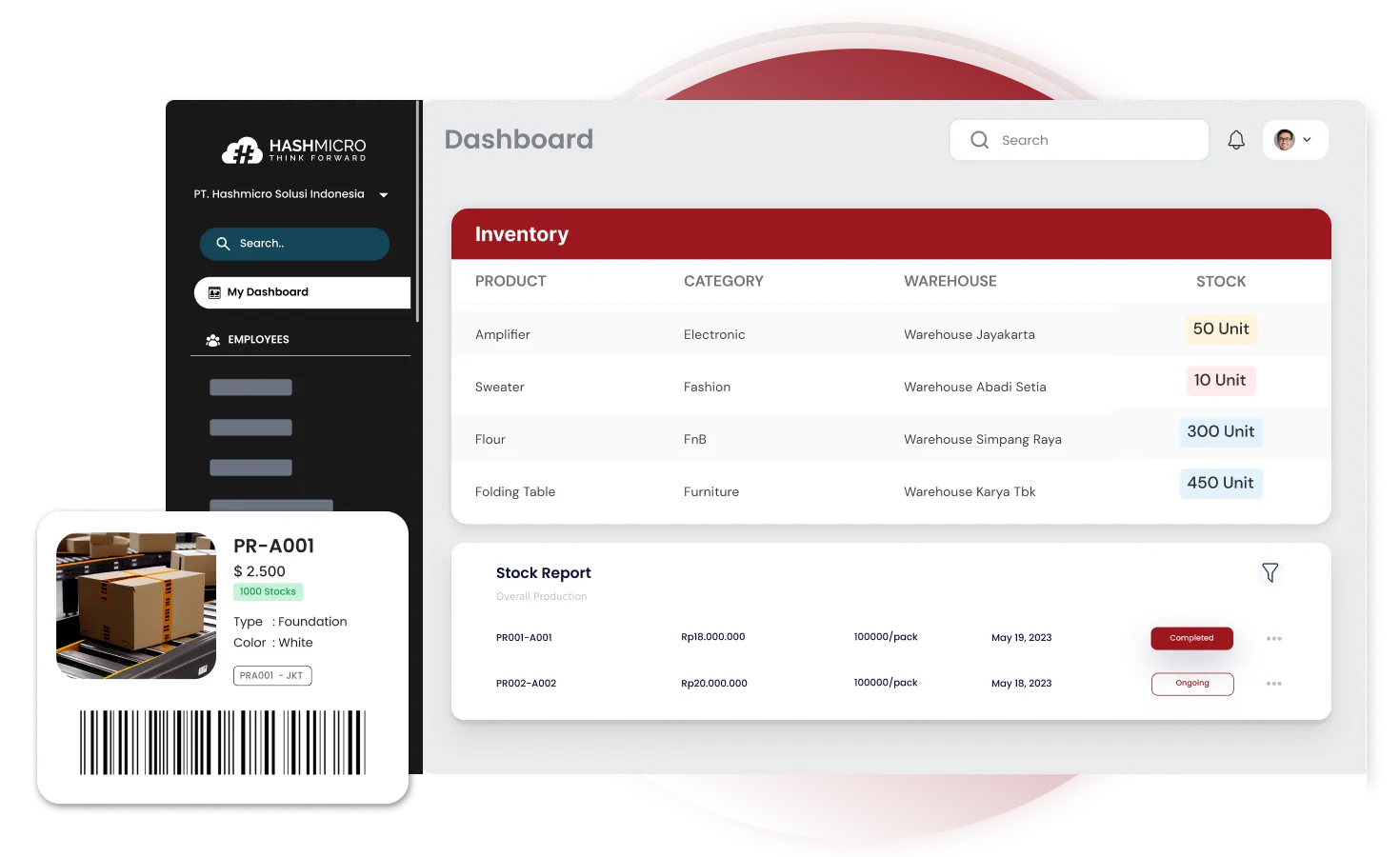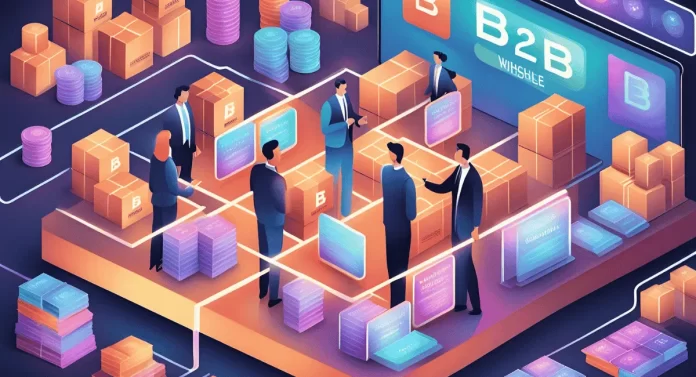Have you ever thought about how big businesses get lots of products so easily? They use something called B2B wholesale, which helps them buy in bulk and save money. It sounds simple, but there’s more to it than you think!
The trick isn’t just buying a lot of stuff. You have to know how to work with other businesses and beat your competition. Want to know the secret to making it work? Keep reading this article because these tips could really help your business grow!
Key Takeaways
|
Table of Contents
What is B2B Wholesale?

B2B wholesale, or business-to-business wholesale, involves selling products in bulk to other businesses. Unlike B2C, where businesses sell directly to consumers, B2B wholesale serves companies that resell or use the products. This simplifies the supply chain, allowing manufacturers to focus on production while wholesalers manage distribution.
A characteristic of B2B wholesale is the large order volumes placed by buyers. These bulk purchases usually have lower per-unit prices, benefiting buyers and sellers. Engaging in this offers access to wider markets and long-term partnerships for Philippine businesses, driving sustainable growth.
Its Role in the Supply Chain
B2B wholesalers are key intermediaries connecting manufacturers with retailers, ensuring efficient product distribution. They buy bulk from manufacturers and resell to businesses, often adding value through services like packaging and delivery. This helps streamline the supply chain, making products available where and when needed.
Wholesalers are crucial in the food, electronics, and construction sectors. Handling logistics allows retailers to offer a wide range of products without managing complex supply chains. This partnership enables manufacturers to focus on bulk production while wholesalers manage distribution and customer relationships.

The Advantages of B2B Wholesale
This provides key advantages that boost revenue and growth. With larger bulk purchases, each transaction generates higher sales, allowing businesses to generate more revenue from fewer transactions. This reduces the time and resources spent on processing multiple smaller sales, enhancing efficiency.
Some advantages are:
- Higher order value – B2B transactions involve large purchases, boosting revenue with fewer deals.
- Broader market access – Wholesalers can cater to various industries, increasing their market reach.
- Specialization opportunities – By focusing on specific sectors, wholesalers can develop expertise and strong reputations.
- Long-term partnerships – Establishing relationships with manufacturers and buyers ensures steady business and trust.
- Cost efficiency – Bulk sales reduce administrative costs and the need for frequent transactions, improving overall profitability.
For Philippine businesses, B2B wholesale offers a great chance to expand their market reach and build lasting relationships. By providing large volumes at competitive prices, businesses can establish themselves as reliable partners, driving growth and sustainability.
The Challenges to Consider
B2B wholesale offers many advantages but comes with challenges businesses must address. Managing long-term customer relationships requires consistent product quality, timely deliveries, and excellent service.
Some of the challenges in B2B ERP are:
- Customer relationship management – Long-term partnerships require consistent service and quality.
- Delivery and quality – Ensuring on-time deliveries and maintaining high product standards is crucial for trust.
- Operational efficiency – Meeting customer expectations while remaining cost-effective is a key business challenge.
- Competition from e-commerce – Online marketplaces and DTC models offer manufacturers direct consumer access.
- Innovation needs – Wholesalers must add value or focus on niche markets to stay competitive.
With the rise of e-commerce and direct-to-consumer models, B2B wholesalers face growing competition. Manufacturers can now sell directly to consumers, reducing reliance on intermediaries. To stay competitive, Philippine wholesalers must innovate by offering specialized services or targeting niche markets.
How to Manage a Successful Wholesale Operation

Managing a successful B2B wholesale operation requires efficient inventory systems and strong customer relationships. Real-time inventory tracking ensures wholesalers meet demand without overstocking or shortages. For Philippine wholesalers, using inventory management software or ERP systems improves efficiency and reduces manual tasks.
Building long-term customer relationships is equally important for success. Clear communication, reliable deliveries, and competitive pricing foster trust and repeat business. Personalized solutions based on client’s unique needs help wholesalers differentiate themselves and build loyalty in the market.
Key Features of B2B Wholesale
These platforms offer a range of features that make the purchasing process easier and more efficient for businesses. These features support transparency, streamline operations, and build trust between buyers and sellers.
Those features are:
- Price transparency – Buyers can easily view bulk discounts and pricing options at various quantity levels.
- Product comparison – Users can compare products and prices from different vendors to find the best deals.
- Partner information – Supplier profiles provide details like delivery rates and transaction histories to inform decisions.
- Thorough inventory control – Real-time stock monitoring and tracking help businesses manage inventory more effectively.
- Direct messaging – Built-in messaging allows buyers to negotiate pricing and terms directly with suppliers.
- Reviews and ratings – Transaction ratings build trust and ensure accountability between buyers and sellers.
- Promotional offers – Vendors can showcase special offers or time-limited discounts to increase sales.
- Vendor certification – Certifications validate suppliers’ commitment to quality, enhancing buyer confidence.
- Escrow services – Secure payment systems hold funds until all contractual terms are fulfilled, protecting both parties.
- Cash flow optimization – Platforms streamline invoicing, helping businesses send and receive payments efficiently.
- Product discovery – Search tools enable buyers to explore new products they might not have known about.
- Digitalized procurement activities – Automated procurement processes improve efficiency and reduce manual tasks.
These features make B2B wholesale platforms essential for businesses looking to simplify bulk purchasing, build long-term relationships, and operate more efficiently. For companies in the Philippines, leveraging these tools can lead to greater market reach and improved operational success.
Future Trends in Business-to-Business Wholesale
Digital transformations and evolving market demands will drive the future of B2B wholesale. Wholesalers must invest in technology to remain competitive, with automation, AI-driven customer service, and data analytics improving efficiency. These advancements will help boost operations and enhance customer satisfaction for Philippine wholesalers.
Technology will also reshape traditional wholesale models, offering better ways to manage supply chains and customer relationships. As digital adoption increases, wholesalers who embrace these innovations will gain a competitive edge. Philippine businesses that adapt to these trends will be well-positioned to succeed in a rapidly changing marketplace.
Automate Business with HashMicro’s Wholesale Software

HashMicro’s Wholesale Software offers the perfect solution to automate and streamline your wholesale operations. By leveraging its advanced features, businesses can manage orders, inventory, and customer relationships more efficiently.
Some features of HashMicro’s B2B wholesale software:
- Real-time inventory control – Monitor stock levels instantly to avoid overstocking or product shortages.
- Automated procurement processes – Streamlined procurement tasks, reducing manual work and improving order accuracy.
- Cash flow optimization – Simplify invoicing and payment processes for faster, more accurate financial management.
- Direct messaging for negotiations – Contact suppliers directly to negotiate terms and pricing with built-in messaging tools.
- Product discovery – Easily search and find new products to expand your catalog and meet client demands.
- Reviews and ratings – Track supplier performance and hold partners accountable with transparent feedback and ratings.
By automating with HashMicro’s software, you reduce errors, increase efficiency, and scale operations smoothly. These six features are just the beginning—it’s one of the most comprehensive from other distribution software.
Conclusion
B2B wholesale provides businesses with the opportunity to streamline operations and grow. Wholesalers can maximize their potential by understanding how to manage bulk orders, build strong customer relationships, and utilize advanced features. Philippine businesses, in particular, can benefit from these strategies to stay competitive and thrive.
Digital transformation and the right tools play a crucial role in future success. HashMicro’s B2B Wholesale Software offers everything you need to automate and scale efficiently. Ready to take the next step? Try the free demo today and see how automation can revolutionize your wholesale business!

Frequently Asked Questions
-
What is B2B wholesale?
It is when businesses sell products in bulk to other businesses, not individual consumers. It simplifies supply chains by enabling manufacturers to focus on production while wholesalers manage distribution.
-
What is an example of a B2B supplier?
An example of a B2B supplier is a company that sells electronics in bulk to retail stores. These stores then resell the products to individual consumers, marking up the prices.
-
What are the benefits of B2B wholesale?
It offers higher order values, cost savings, and long-term partnerships for both buyers and sellers. It also broadens market reach and boosts efficiency through bulk transactions and streamlined operations.




































